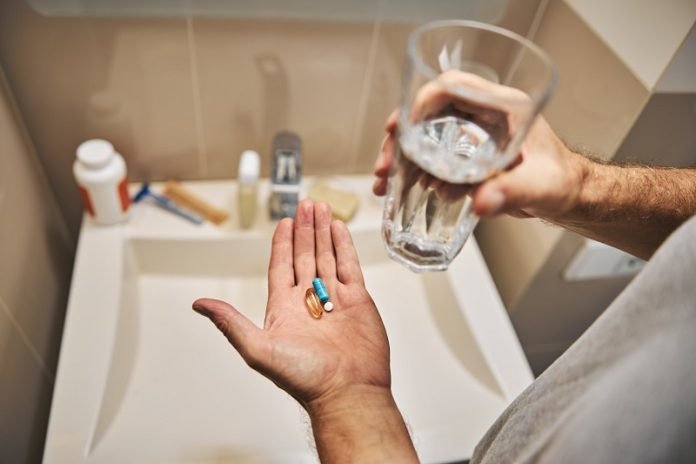
High blood pressure is a global health concern, and managing it can sometimes be challenging. New findings from a study by the University of Maine and other institutions suggest a natural method to aid this management.
The researchers found that using Vitamin B to lower levels of a compound called homocysteine can help in reducing blood pressure effectively, especially in cases where medication alone isn’t enough.
The Challenge of Drug-Resistant High Blood Pressure
About 12.8% of people around the world struggle with drug-resistant high blood pressure, meaning their blood pressure remains high despite using multiple medications.
The standard target is to get blood pressure below 140/90 mmHg, but new guidelines have lowered this to 130/80 mmHg, making management even more daunting.
This condition requires alternative approaches to prevent severe health complications like heart disease and stroke.
Homocysteine and Its Role
Homocysteine is a substance our bodies produce, playing a part in vitamin regulation. If we have high levels of homocysteine, it usually means there is a shortage of certain B vitamins like B6, B12, folate, and riboflavin (B2) or due to genetic mutations.
This elevated homocysteine leads to problems in the creation of nitrous oxide, causing the small blood vessels to narrow (vasoconstriction), and subsequently, becoming a risk factor for high blood pressure and several other conditions.
Discoveries from the Study
The researchers, after reviewing various pieces of literature, concluded that taking sufficient amounts of non-dietary sourced B vitamins can decrease blood pressure levels significantly, by about 6 to 13 mmHg.
They found that this approach is particularly effective and safe for managing blood pressure, especially when medications fail to do so.
However, there’s a debate about what’s considered a ‘normal’ level of homocysteine.
Currently, many laboratories consider levels as high as 11.4 μmol/L to be normal, but some argue that this should be lower, suggesting that ≤10 μmol/L should be the new normal.
This discrepancy underlines the need for an update in the laboratory values for normal homocysteine.
The Importance of B Vitamins
Using Vitamin B as a supplementary treatment can be an affordable and effective way to manage drug-resistant high blood pressure, as it helps lower homocysteine levels.
Although recent findings support the efficiency and safety of this method, it’s crucial to note that any such therapy should be done under the supervision of a physician or a qualified healthcare provider, to avoid complications and ensure proper management of the condition.
The researchers emphasize that vitamin treatment can be a valuable addition to drug treatment for those dealing with resistant high blood pressure.
Conclusion
This groundbreaking study sheds light on how leveraging Vitamin B can be a game-changer in the fight against high blood pressure, particularly when medications are ineffective.
The possibility of using a natural, cost-effective method to manage this prevalent condition opens new doors for those struggling with traditional treatments.
As we move forward, the role of vitamins in managing high blood pressure could become a standard part of treatment plans, allowing for more comprehensive and effective care.
However, proper consultation and supervision from healthcare providers are paramount to ensuring the safety and success of this approach.
If you care about high blood pressure, please read studies that drinking tea could help lower blood pressure, and early time-restricted eating could help improve blood pressure.
For more information about blood pressure, please see recent studies about added sugar in your diet linked to higher blood pressure, and results showing vitamin D could improve blood pressure in people with diabetes.
Follow us on Twitter for more articles about this topic.
Copyright © 2023 Knowridge Science Report. All rights reserved.



